Proteins and Nucleic Acid
Syllabus
Academic Year: Spring-20
Course Name: BIO472/BIO572 Protein and Nucleic Acid
Name: Dr. Alexandra Martynova-Van Kley
Department: Biology
Email: avankley@sfasu.edu
LATEST UPDATE: Due to COVID19 class and office hours are on Zoom, for details see your email.
WELCOME TO BIO472/BIO572: 3 semester hours. The goal of the course is to provide a critical understanding of the relationshipbetween protein structure and function, including such issues as enzyme mechanisms, DNA and RNA recognition, and specific protein associations.Three dimensional structures of these macromolecules will be described in conjunction with study of the chemical and physical methodsused in their purification and characterization. The laboratory provides hands-on experience with state-of-the-art equipment used in the biotechindustry. The laboratory experiments will allow students to gain experience in using computer applications related to the determination of thestructures and properties of biological molecules and recent bioinformatics tools. The class meets for 2 hours of lecture each week.An additional 3 hours per week is spent learning the laboratory techniques. Graduate students will be required to complete a small independent project upon completion of the course.
ATTENDANCE: You are expected to attend all lecture classes. It is vital that you read the chapter text prior to class as this will permit you to pose questions more efficiently. If you miss a lecture class for unavoidable reasons, make sure you get the notes from another student and visit my office to make arrangement for a make-up work.Missing an exam will be permitted only by prior arrangement.
HANDOUTS: Handouts based on lecture slides will be provided before each lecture. The professor reserves the right to make last minute changes to the slides.
TEXTBOOK: Biochemistry, by Donald Voet
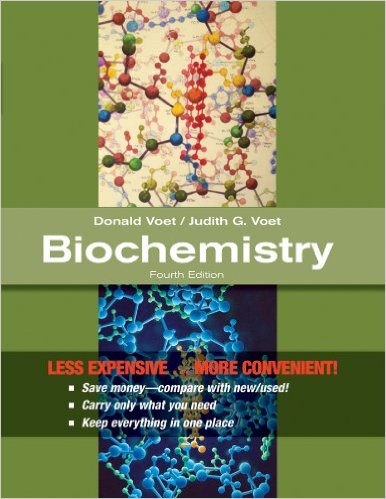 |
RECOMMENDED: Not required
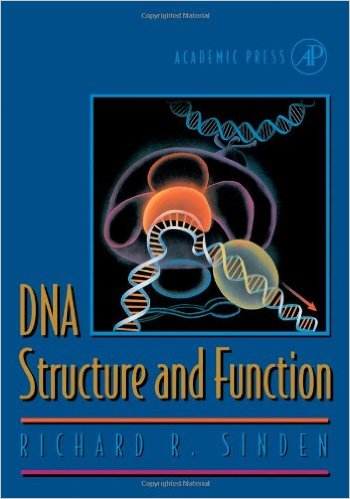 | 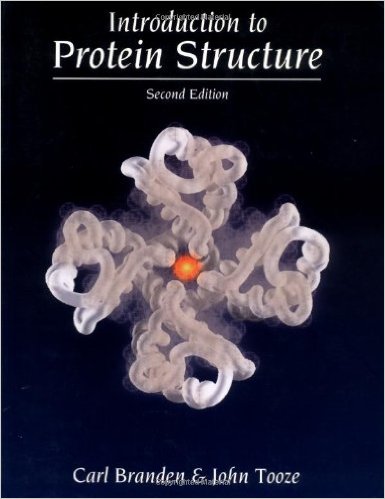 | 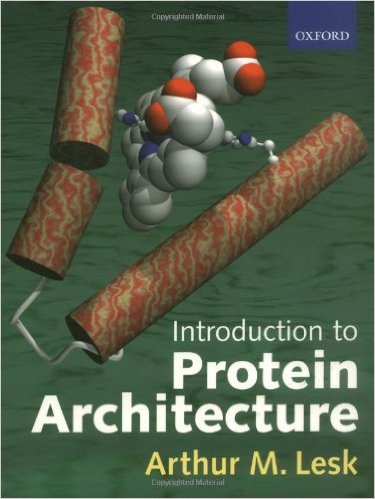 | 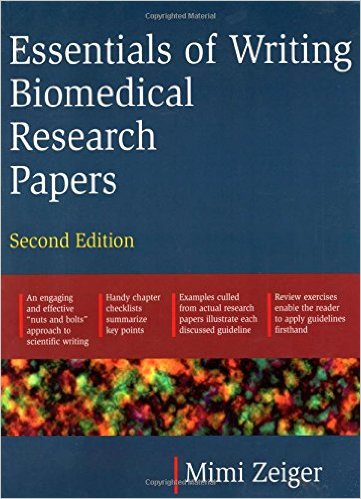 |
OFFICE HOURS: T,W 13:00-15:30, or by appointment; room S 236. Should you have questions or need additional help feel free to contact me at 936-468-2569. You can also E-mail me at avankley@sfasu.edu.
GRADING CRITERIA:
Laboratory Notebook/Performance - 10 pts
Quizzes - 10 pts
Midterm & Final EXAMS - 2X30 pts
Laboratory Report - 20 pts
Independant project for grad students - 50 pts
TOTAL - 100/150 pts
GRADES: check here
LABORATORY NOTEBOOK/PERFORMANCE:Notebooks will be signed after every laboratory by teaching assistants. Notebook should be hardbound. Notebook must represent real-time data, methods and results. There should be scratch-outs, scribbles, notes, drawings, calculations, etc. Notebook must include: date, title of experiment, purpose of experiment and original data. Notebook should include vendor and lot numbers of reagents used and the name and model numbers of the equipment used. Notebook must contain original figures and data. Performance will be based on your punctuality, preparation, time management and participation.Learn more follow the link "How to Develop a Laboratory Notebook" in a lab schedule section below.
LABORATORY REPORTS:Due date will be announced. Must be typed (double-spaced). Include near publication quality figures, tables.Use publication format, include:Title pageAbstract(overall purpose and conclusion)Introduction(literature review pertaining to the method of study and the compound(s) being studied)Materials & Methods(accurate, detailed written text explaining what was actually done and whatequipment was used)Results(results as obtained)Discussion(summary in context of the original purpose)ReferencesAppendix (optional)Copy of laboratory notebook pages for the particular experiment section
EXAMINATIONS: See the schedule for dates and times. Format will include but is not limited to multiple choice, short answer and essay type questions. Context will include any material covered during lectures and oral presentations.
CELL PHONES, LAPTOPS AND OTHER ELECTRONIC DEVICES: All electronic devices MUST be turned off and PACKED AWAY during the lecture. Students using electronic devices during class will loose up to 10 points of their final grade. Any use of an electronic device during a test will be considered cheating
ACADEMIC HONESTY: All daily scored questions can be answered after discussion within your group, but you must submit your answer individually with your own clicker only. Use of any other person’s clicker is considered cheating.All exam work submitted for grading must be exclusively your own. Any dishonesty or cheating may result in a final score of zero (“F”) for the course. SFA Policy A-9.1 is summarized as:“Academic integrity is a responsibility of all university faculty and students. Faculty members promote academic integrity in multiple ways including instruction on the components of academic honesty, as well as abiding by university policy on penalties for cheating and plagiarism.Definition of Academic Dishonesty: Academic dishonesty includes both cheating and plagiarism. Cheating includes but is not limited to (1) using or attempting to use unauthorized materials to aid in achieving a better grade on a component of a class; (2) the falsification or invention of any information, including citations, on an assigned exercise; and/or (3) helping or attempting to help another in an act of cheating or plagiarism. Plagiarism is presenting the words or ideas of another person as if they were your own. Examples of plagiarism are (1) submitting an assignment as if it were one's own work when, in fact, it is at least partly the work of another; (2) submitting a work that has been purchased or otherwise obtained from an Internet source or another source; and (3) incorporating the words or ideas of an author into one's paper without giving the author due credit.”(http://www.sfasu.edu/policies/academic_integrity.asp )
STUDENTS WITH DISABILITIES: To obtain disability related accommodations, alternate formats and/or auxiliary aids, students with disabilities must contact the Office of Disability Services (ODS), Human Services Building, and Room 325, 468-3004 / 468-1004 (TDD) as early as possible in the semester. Once verified, ODS will notify the course instructor and outline the accommodation and/or auxiliary aids to be provided. Failure to request services in a timely manner may delay your accommodations. For additional information, go to http://www.sfasu.edu/disabilityservices/.
CLASSROOM EXPECTATIONS: Standard classroom decorum is expected. Please do not carry on a separate conversation that might be distracting to other students. If you have a cell phone or pager, please make sure it is either turned off or set to silent operation. Behavior that interferes with the learning environment will not be tolerated. If necessary, students violating these standards will be removed from the classroom. Additionally, please arrive in class a bit early as we will be starting promptly on time.WITHHELD GRADES, SEMESTER GRADES POLICY (SFA POLICY A-54).Ordinarily, at the discretion of the instructor of record and with the approval of the academic chair/director, a grade of WH will be assigned only if the student cannot complete the course work because of unavoidable circumstances. Students must complete the work within one calendar year from the end of the semester in which they receive a WH, or the grade automatically becomes an F. If students register for the same course in future terms the WH will automatically become an F and will be counted as a repeated course for the purpose of computing the grade point average.The circumstances precipitating the request must have occurred after the last day in which a student could withdraw from a course. Students requesting a WH must be passing the course with a minimum projected grade of C.
Lectures
| Date | Lecture topics | Presentation |
|---|---|---|
| 01/16 | Meeting with the class | |
| 01/23 | History of Discoveries in Molecular Biology | HistMolBiolBio472 |
| 01/30 | DNA/RNA and it's primary structure | NAprimaryBio472 |
| 02/06 | DNA/RNA and it's secondary structure | NAsecondaryBio472 |
| 02/13 | DNA/RNA and it's tertiary structure | NAtertiaryBio472 |
| 02/20 | Melting temperature | TempBio472 |
| 02/27 | DNA/RNA Tools | NAtoolsBio472 |
| 03/05 | Exam (nucleic acids part) | |
| 03/12 | Spring Break | |
| 03/19 | Exam review | |
| 03/26 | Proteins and their primary structure | ProtPrimaryBio472 |
| 04/02 | Proteins and their secondary structure | ProtSecBio472 |
| 04/09 | Proteins and super secondary/tertiary structure | ProtSSTertiaryBio472 |
| 04/16 | Proteins and their quaternary structure | ProtQuatBio472 |
| 04/23 | DNA Proteins interactions | InteractBio472 |
| 04/30 | Working with Proteins | ProtToolsBio472 |
| 05/07 | Exam |
Laboratories
| Date | Laboratory topics | Presentation |
|---|---|---|
| 01/16 | Meeting with the class | |
| 01/23 | No lab | How to Develop a Laboratory Notebook |
| 01/30 | Equipment in the lab | |
| 02/06 | Samples, DNA purification | |
| 02/13 | DNA amplification | PCR_AgaroseGel |
| 02/20 | DNA visualization | AgaroseGelElectrophoresis |
| 02/27 | DGGE | DGGE |
| 03/05 | Exam | |
| 03/12 | Spring Break | |
| 03/19 | SDSPAGE | SDS PAGE |
| 03/26 | Real time PCR | RealTime_seq |
| 04/02 | Sequencing Technologies | seq |
| 04/09 | Pyrosequencing Analysis Sequencing Technologies | AnalysisSeqLab |
| 04/16 | Data Analysis (independently) | |
| 04/23 | Lab report due. Notebooks due. Presenting Lab results | |
| 04/30 | Presenting Independent Projects | publication format |
| 05/07 | Exam |
Exam 1
- first subtopic goes here
- second subtopic goes here
First topic goes here
Second topic goes here
Exam 2
- first subtopic goes here
- second subtopic goes here
First topic goes here
Second topic goes here
Contacts
| e-mail: avankley@sfasu.edu |
|---|